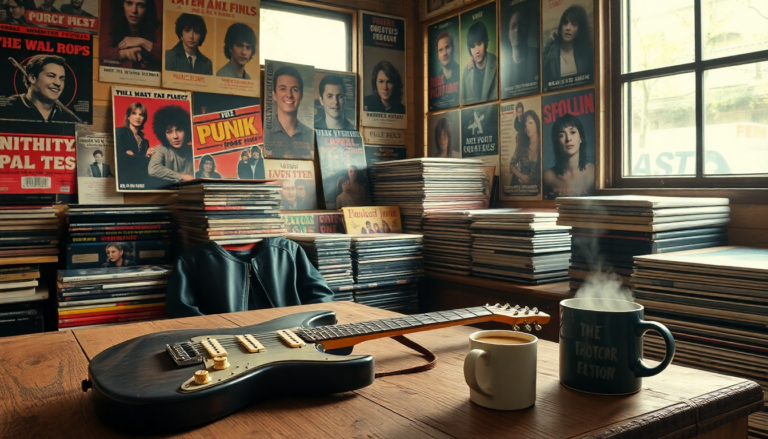Argomenti trattati
Punk rock is often painted with broad strokes—raw energy, rebellion, and a soundtrack for the disaffected youth. But what if I told you that its true origins might be more nuanced than we think? Recently, I stumbled upon an old t-shirt worn by Kim Gordon of Sonic Youth that boldly proclaimed, “Girls invented punk rock, not England.” This provocative statement has resurfaced in social media discussions, sparking curiosity and debate. It raises an important question: how much do we really know about punk’s roots? And who gets to tell the story?
Revisiting punk’s narrative
While some may argue over the geographical birthplace of punk, it’s essential to recognize the contributions of women who shaped the genre. Look back to the ’70s and ’80s. Women like Patti Smith, Debbie Harry, and the Slits were not merely participants; they were pioneers. They redefined the narrative, bringing a fresh perspective that challenged the male-dominated scene. Their fierce lyrics and unapologetic presence paved the way for future generations. In fact, it’s hard to imagine the punk landscape without their influence.
A new era of recognition
Fast forward to today, and we find that the conversation continues to evolve. The recent addition of albums to the Library of Congress’ National Recording Registry reminds us of the power of music. Among these entries is the legendary Miles Davis’ album, Bitches Brew. This groundbreaking work not only revolutionized jazz but also had a ripple effect on various genres, including punk. It’s fascinating how music transcends boundaries, intertwining narratives that are often overlooked.
For those who love to explore local culture, Brooklyn offers a treasure trove of hidden gems. I recently had the pleasure of discovering one such spot, thanks to the late Nino Pantano, who showcased incredible talent at a Sunset Park elementary school auditorium. It was a delightful surprise to witness such raw talent in a community setting. The atmosphere buzzed with energy, reminiscent of the early punk shows where everyone came together for the love of music. It was a reminder that, at its core, punk is about community and expression.
Culinary adventures and community
Speaking of community, let’s pivot a bit. After many delightful dinners at Wraptor Restaurant and Bar on Columbia Street, I decided to venture into their breakfast offerings. I ordered a western omelet, and boy, was it a feast! Packed with generous portions of ham, onions, and peppers, it was everything I hoped for and more. The eggs were perfectly cooked—no runny mess here! With a side of crispy fries and a refreshing glass of juice, it felt like a small celebration of the everyday.
Reflecting on influence and legacy
As we reflect on music and food, it’s clear that both serve as vital components of culture. They bring people together, foster connections, and allow us to express our individuality. Just like the punk movement, which continues to inspire countless artists and musicians, a good meal can evoke nostalgia and create lasting memories. Whether it’s the energy of a live show or the warmth of a hearty breakfast, these experiences shape who we are.
The enduring spirit of punk
So, what’s the takeaway from this exploration? Maybe it’s time we broaden our understanding of punk rock’s origins and acknowledge the diverse voices that have contributed to its legacy. Let’s celebrate the groundbreaking artists, the hidden gems in our neighborhoods, and the simple yet profound moments shared over a meal. Punk isn’t just a genre; it’s a spirit. A spirit that encourages us to challenge norms, embrace creativity, and, above all, remember those who paved the way.

